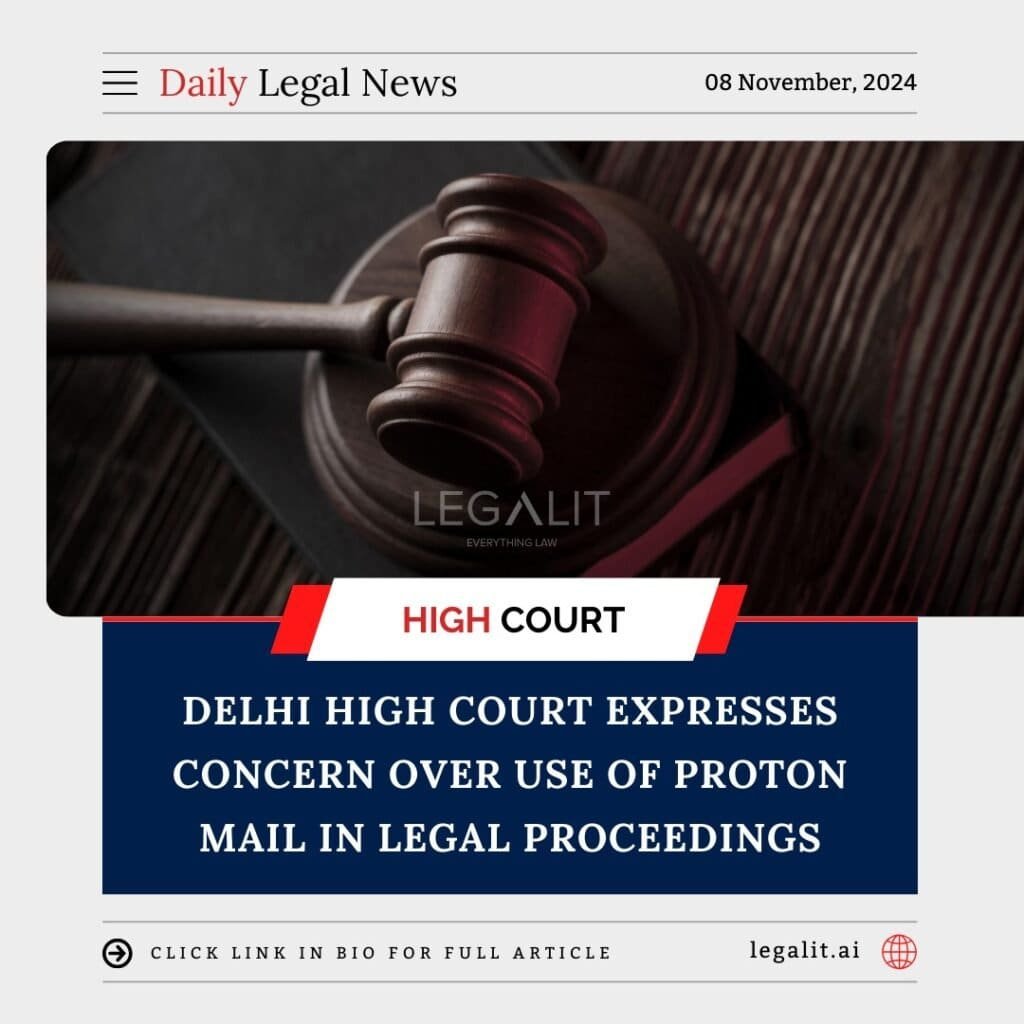
The Delhi High Court recently raised concerns regarding the use of Proton Mail, an encrypted email service, in legal proceedings. The court questioned whether the platform’s anonymity features could potentially hinder transparency and accountability in communication related to court matters.
Background:
Proton Mail is known for its strong privacy features, offering end-to-end encryption and anonymous email addresses. While it has gained popularity for safeguarding user privacy, the Delhi High Court questioned its use in legal contexts, where traceability and transparency of communication are crucial. The court’s concern stemmed from potential difficulties in verifying the authenticity and integrity of communications sent through such platforms.
Court’s Rationale:
The Delhi High Court noted that while privacy is a fundamental right, it must be balanced with the need for transparency and accountability in the legal process. The court expressed reservations about the use of Proton Mail in legal matters, particularly when it might complicate the identification of individuals and the verification of communications, which are essential for ensuring the credibility of legal proceedings.
Existing Measures:
The judiciary has set clear guidelines regarding electronic communication in legal cases, emphasizing the need for verifiable and transparent means of communication. Courts in India have increasingly adopted digital tools, but concerns about privacy, data protection, and traceability continue to be addressed in various rulings.
Conclusion:
The Delhi High Court’s comments on the use of Proton Mail underline the challenges in balancing privacy and transparency in the digital age. The ruling serves as a reminder that while privacy tools are valuable, their application in legal contexts must not compromise the integrity of the judicial process. The case may lead to further discussions on the regulation of digital platforms in legal proceedings.